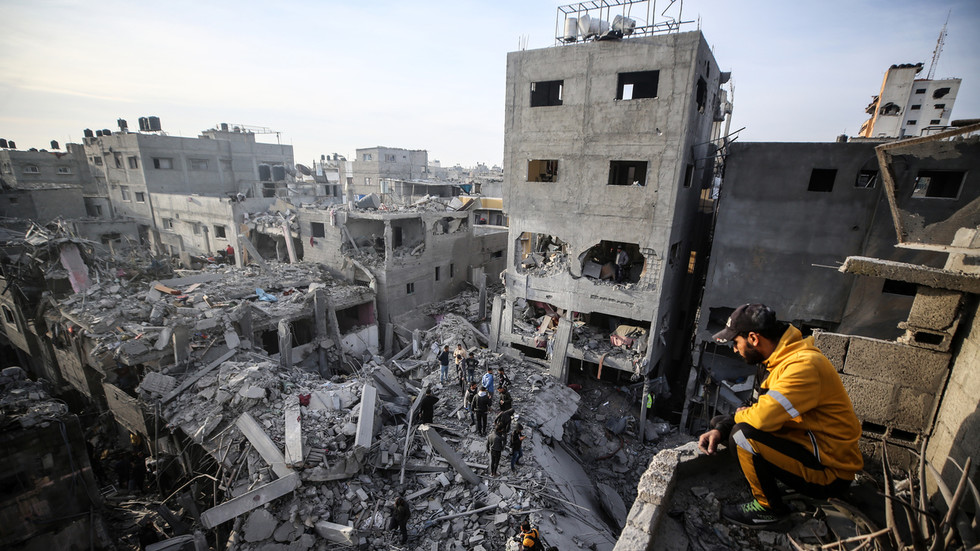The ongoing conflict in Gaza has led to heightened tensions within international bodies, particularly reflected in the U.S.’s repeated vetoes of ceasefire resolutions at the United Nations Security Council (UNSC). Russia’s Foreign Ministry has criticized this consistent use of veto power, arguing that it has rendered the UNSC ineffective in addressing the longstanding Israeli-Palestinian conflict. Following the recent escalation in violence, the UN General Assembly (UNGA) adopted resolutions calling for an immediate ceasefire and support for the UN agency dedicated to Palestinian refugees, known as UNRWA. However, unlike resolutions passed by the Security Council, which are binding, those adopted by the General Assembly carry no legal weight, thus limiting their potential impact.
The nature of the resolutions passed by the General Assembly mirrors those previously blocked by the U.S. at the Security Council, particularly the demand for an “immediate, unconditional and permanent ceasefire.” The push for a ceasefire is deemed essential amid what Russia refers to as “catastrophic circumstances” within the ongoing conflict. The Russian Foreign Ministry highlighted the inadequacy of the Security Council in fulfilling its primary role of maintaining international peace and security due to what they perceive as the U.S.’s misuse of its veto power. They have stated that the Security Council has been paralyzed, particularly as the U.S. has exercised its veto six times since the conflict intensified. This paralysis raises questions about the efficacy of the UN in resolving urgent humanitarian crises.
The U.S. and Israeli responses to the calls for ceasefire, however, reflect contrasting perspectives. U.S. officials, including the envoy to the UN, have expressed concerns that a ceasefire would offer an advantage to Hamas, potentially stalling or obstructing the broader negotiations needed to address the violence. Israel has similarly accused Hamas of manipulating the situation to their favor, suggesting that the push for a ceasefire is an effort to validate Hamas’ strategies. This narrative fits into the larger discourse where Israel has long held suspicions about UNRWA, accusing the agency of allowing Hamas to infiltrate its operations and resources. Israel’s envoy to the UN emphasized that prior evidence provided was disregarded and unaddressed.
The implications of the situation are dire, with reports estimating that nearly 45,000 Palestinians have been killed in the conflict since it erupted on October 7, 2023. This tragic escalation began with a surprise attack by Hamas, which resulted in significant casualties and led to the current humanitarian crisis. According to estimates, around 1,200 Israelis died in the initial assault, while more than 250 individuals were taken hostage, with many still believed to be held by Hamas in Gaza. This context significantly influences international perceptions and responses, complicating the dynamics surrounding both the ceasefire efforts and the broader geopolitical landscape in the region.
UNRWA’s role in this landscape has attracted scrutiny, particularly as Israel has taken stern measures to limit the agency’s operations within the territories affected by the conflict. The agency’s head, Philippe Lazzarini, has characterized Israel’s actions as part of a broader strategy to undermine UNRWA’s credibility and discredit its efforts in providing essential services and support to Palestinian refugees. This situation calls attention to the intersectionality of humanitarian aid, political influence, and the legitimacy of international organizations.
In summary, the conflict between Israel and Hamas, compounded by the U.S.’s vetoes in the UN Security Council, paints a complex picture of international relations and humanitarian crises. The UN General Assembly’s resolutions, while aimed at providing urgent humanitarian assistance and calling for peace, lack the binding authority to enforce real change on the ground. The intense political tensions and accusations circulating between involved parties only serve to deepen divides, highlighting the challenges in achieving a peaceful resolution to the Israeli-Palestinian conflict amidst mounting violence and humanitarian consequences.

